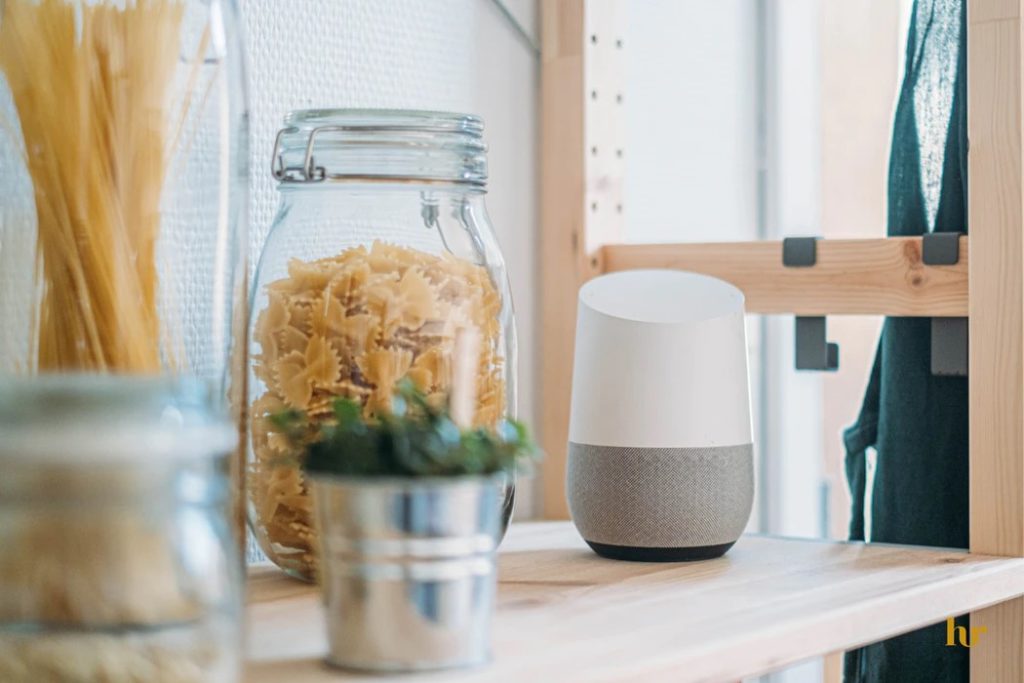How Much of an Impact Do Voice Assistants Have in a Smart Home

We’ve all thought of it – having an assistant who listens all the time for you and anticipates any and every need you might have, in order to take action when it’s necessary. And while that used to cost quite a lot, and was only available if you could afford it, nowadays we’ve got that, in the form of a virtual voice assistant.
Thank you for reading this post, don't forget to subscribe!They’re present everywhere. From Bluetooth speakers to home security systems and TVs, you can find one in just about any device that has a microphone, a speaker, or both. And there’s certainly no shortage of them. The most popular ones are Amazon’s Alexa, Google’s Assistant, and Apple’s Siri, but there are a lot of not-so-well-known ones that do a really great job.
But with all this in mind, there are a lot of people that don’t really take advantage of voice assistants. However, there’s no denying that they have quite an impact on our lives, especially for those who are invested in the idea of a smart home. If you’re one of those people, just how much of an impact does a voice assistant have? Let’s find out.

It All Started on Our Smartphones
The story of a voice assistant originated on our phones with Google including the Google Assistant and Apple including Siri on their respective operating systems. They basically let you do quite a lot of different tasks hands-free, which is why so many people like using them, and that’s also why new assistants seem to come out rather often, too. Back in 2017, nearly half of the adults in the US made use of such an assistant, and today things aren’t too different. There’s an estimate that over 8 billion voice assistants will be in use by 2023, which isn’t too far away.
Know About TV Viewing Habits Changed Over Time
Siri was the first to come back in 2011, and the voice assistant changed the way we communicate with our phones. And in a similar manner, the introduction of Amazon’s Alexa did the same thing for the smart home. Alexa was something that Amazon was working on, rather quietly, for around three years. The inspiration for Alexa was Star Trek’s Computer.
How Do You Trigger Them?
Just like the technology itself evolves, so do the ways people interact with smart assistants. As a comparison, take a look at internet searches. A few years ago, it had to be very specific and it used to give you weird results. Today, you’ll get exactly what you’re looking for because search engines understand the context and know your search’s intent.
The same thing is happening with voice assistants. Early on, you used to interact with them by typing in a phrase in their apps, which triggered a response. Today, we’re seeing voice taking over. Such assistants, whether they’re in a smartphone or on a smart home speaker, are listening to their ‘trigger’ words. For example, Amazon’s is “Alexa”, while Google’s is “Hey Google”. Sure, you could somewhat personalize them, which makes them a bit more customizable.
How Popular Are They?
Very. But you aren’t here for an answer this short, so let’s take a look at some statistics. It’s estimated that around 19.7% of US adults make use of a smart home speaker that houses a voice assistant, in one way or another. They’re oftentimes placed in the living room, kitchen, or in the bedroom, but some people opt to use them in their garages or work offices, too. It’s all a matter of convenience, and you should set it up where it gets most done for you. People tend to use these once or twice per day, at least, with around 12.7% using them more than six times per day.
And when it comes to usage, the key thing they use them for is to ask some kind of question or listen to some kind of streaming music service. Checking the weather is another popular one, and so is setting a timer – something we would bet comes in handy when you’re in the kitchen. Unfortunately, making purchases or messaging and calling people aren’t too popular. But this is set to change when people get comfortable with voice assistants and start trusting them a bit more.
Wrapping things up
As you can see from the sheer number of people who use them, as well as the things they use them for, voice assistants have quite the impact. In a smart home, you’re able to control just about any smart device that’s connected to the hub, and things work really, really well. You no longer have to reach for your smartphone, and everything is available with nothing more than a voice command. Neat, right?
